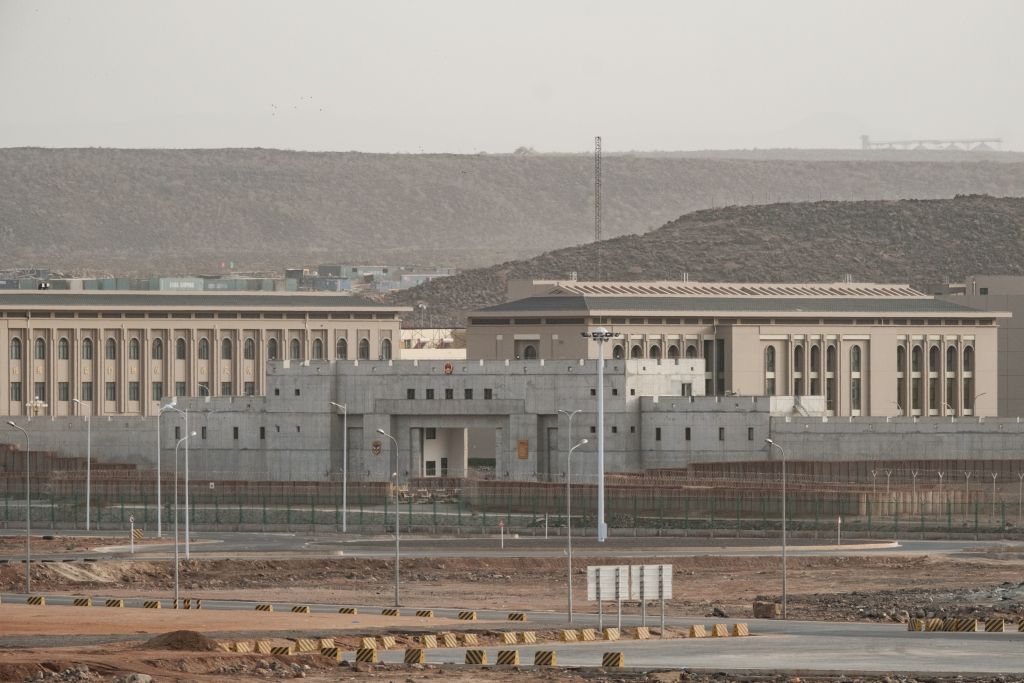Chinese companies are involved in one-third of Africa’s 231 commercial ports, a significantly larger presence and influence than anywhere else in the world, including Asia, according to a recent report.
China’s involvement raises concerns about the amount of debt African nations incur, their lack of sovereignty over their national assets and fears that they could be pulled into larger geostrategic rivalries.
In “Mapping China’s Strategic Port Development in Africa,” Africa Center for Strategic Studies Research Associate Paul Nantulya writes that various state-owned companies act as “builders, financiers, or operators” in 78 ports in 32 African nations. Nearly half of those port developments are in West Africa.
In some instances, these Chinese companies “will dominate the entire port development enterprise from finance to construction, operations, and share ownership,” Nantulya writes in the March 10 report. Sometimes a Chinese conglomerate will act as the main contractor and then award subcontracts to its subsidiaries.
One of West Africa’s busiest ports shows how the foreign involvement can affect a host nation. China Harbor Engineering Co. engineered and built Nigeria’s Lekki Deep Sea Port with financing from China Development Bank. Then it took a 54% financial stake in the port and operates it through a 16-year lease, Nantulya wrote. This raises security and sovereignty concerns.
“A firm holding an operating lease or concession agreement reaps not only the financial benefits of all trade passing through that port but can also control access,” Nantulya wrote. “The operator determines the allocation of piers, accepts or denies port calls, and can offer preferential rates and services for its nation’s vessels and cargo.”
Another concern is China using its port involvement as a steppingstone to establishing a naval base. The prospect is not without precedent in Africa. China established its first known foreign military base in Doraleh, Djibouti, in 2017 after a Chinese company built the port there. It is close to other military bases that belong to France, Germany, Italy, Japan, Saudi Arabia, Spain, the United Kingdom and the United States.
The Djibouti base positions China in the middle of one of the world’s most important shipping lanes between two strategic Red Sea chokepoints: the Suez Canal and the Bab el-Mandeb strait. More than a quarter of global shipping passes through this vital corridor.
“Beijing was able to portray its unilateral military presence as part of the international effort to combat piracy and protect global trade passing through the Suez Canal,” Michaël Tanchum, associate senior policy fellow for the European Council on Foreign Relations, wrote in December 2021. “Nonetheless, China’s establishment of its Djibouti base, with a dock reportedly capable of accommodating aircraft carriers and nuclear submarines, is also in keeping with its journey towards consolidating a continent-wide security presence.”
Concerns about Chinese military bases in Africa have persisted in rumor, suspicion and African media reports going back at least as far as January 2015, when The Namibian newspaper reported on China and Namibia’s denial of plans for a Chinese naval base at Walvis Bay. No such base has been built in Namibia.
Equatorial Guinea is another West African nation that China is rumored to be eyeing for a military base. Nantulya considers Equatorial Guinea among the “less suitable” options available. However, he points to six continental ports, in addition to Doraleh, that lend themselves to military use owing to their design features. They are Luanda, Angola; Mombasa, Kenya; Walvis Bay, Namibia; Lekki, Nigeria; Victoria, Seychelles; and Dar es Salaam, Tanzania.
A Chinese naval presence along African coasts could have catastrophic ramifications for any nation hoping to protect its national fishing rights. China’s deepwater fishing fleet already plunders fish stocks up and down the West African coast.
As Chinese companies have invested in African ports, continental nations have become dependent on the export infrastructure to conduct their foreign trade, Nantulya wrote. This could make them less likely to oppose Chinese policy.
“Looking into the future, it can be expected that China will seek to increase its role in building African ports to expand its ownership and operational control toward Chinese commercial, economic, and military ends.”

